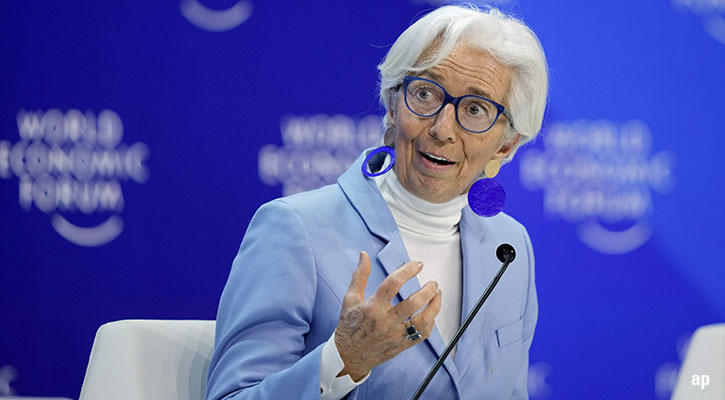Emma Wall: Hello, and welcome to the Morningstar Investment Conference. I'm Emma Wall and I'm joined today by Lord Deben to talk about climate change.
Hello, Lord Deben.
Lord Deben: Hello.
Wall: So, why should investors care about climate change?
Lord Deben: Because they want to make money. If they don't recognise that companies that don't deal with the threat of climate change will lose money than they themselves will be investing in the wrong places. Because after all, the whole world is fighting climate change, climate change's real effect on all of us.
And companies which get there first, who make sure their products are made in a way which doesn't pollute the atmosphere, make sure that their businesses use less energy, make sure they are using renewable energy, all those things will contribute to their profit.
Wall: Because I think it's fair to say maybe a decade ago when you looked to be a green investor, you had to choose between ethics and profits. Because a number of the sort of so-called sin stocks outperformed. But now, there's such a pressure, as you say, from government and also from investors about ESG that actually that's no longer the case. You can have both, can't you?
Lord Deben: Well, of course. And so, you should because what sustainability is about is saying how do you make sure that your business is here in five years' time.
And we all know companies like Arthur Andersen, for example, who didn't think of that and their businesses aren't here any longer. But they thought they were eternal and there are lots of companies now who won't be here in 10, 15 years' time and they will decline if they don't face up to the realities that climate change is serious, governments are determined to fight them, and people are recognising that. Why do you think they are so keen, for example, not using plastic straws and getting rid of plastic things and all the rest of it? Because people have begun seriously to recognize the frightening prospects.
Wall: Let's name and shame then. Which industries are worst in accepting that this is new reality?
Lord Deben: Well, of course, the fossil fuel industries are bound to be the worst because they are actually producing something which is the main cause. Other industries that you would have expected to be bad, for example, industries that depend on refrigeration have actually faced that. You look at Coca-Cola, for example, which is no longer buying refrigeration based on HFCS.
You look at Unilever which has done the same thing. These are industries which have faced up to the issue and sensibly in both of those cases faced up to it long before it became a public matter, so that by the time it did, they have changed, they were different.
Wall: And how much can investors play a part in this? Because of course, shareholders have rights. Is it about putting pressure on those companies that haven't made those adjustments in order to ensure that they are there in, as you say, five years' time?
Lord Deben: Well, I very much believe in shareholder activism. I don't much like people who say I'm not going to have shares in this or that kind of thing, because it means they opt out of the pressures that they could have. So, we were discussing earlier on about the gun laws in America and people saying, I don't want to have shares in companies that make guns.
I think you should have shares in companies that make guns, but you should make sure those companies don't sell to children under 21, don't sell products which are wholly unsuitable, what on earth does somebody want Kalashnikov for. I mean, there are whole series of things that you can do without saying that you can't have a shotgun properly licensed and properly used.
But you – it is for the shareholders to do those pressures. But it is true that you must choose. I mean, there are certain great fossil fuel companies that are trying to make a difference. But I wouldn't myself want to have shares in ExxonMobil, for example, who has come very late to the party and I'm not sure is actually there yet.
Wall: So, it's about best of breed in your opinion?
Lord Deben: It's about best of breed. And of course, people choose their own interest and of course, it would be good to be supporting some of the startup companies which are really out there not only because it's a good thing but also because some of those are going to strike really good and they will the ones where you make your real profits.
Wall: Lord Deben, thank you very much.
Lord Deben: Thank you.
Wall: This is Emma Wall for Morningstar. Thank you for watching.
The information contained within is for educational and informational purposes ONLY. It is not intended nor should it be considered an invitation or inducement to buy or sell a security or securities noted within nor should it be viewed as a communication intended to persuade or incite you to buy or sell security or securities noted within. Any commentary provided is the opinion of the author and should not be considered a personalised recommendation. The information contained within should not be a person's sole basis for making an investment decision. Please contact your financial professional before making an investment decision.






















